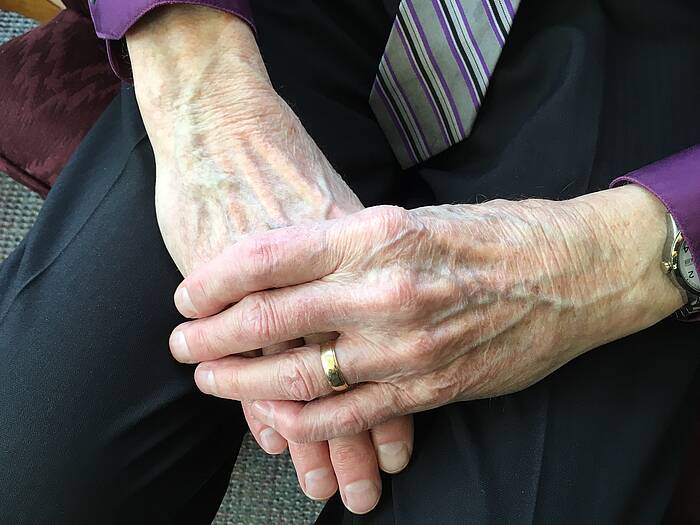
Many older adults in the Midwest are coping well during the COVID-19 pandemic, according to a new study by NDSU researchers.
The research project, titled “Lessons in Resilience: Initial Coping among Older Adults during the COVID-19 Pandemic,” was conducted by gerontologists Heather Fuller in Human Development and Family Science and Andrea Huseth-Zosel, NDSU Department of Public Health.
In addition to increased health risks that older adults face, researchers wanted to examine the seniors’ mental health and social well-being due to coronavirus.
“We were very interested in understanding how they would adapt and cope with this increased social isolation due to the pandemic. We wanted to understand how they were coping and what strategies seemed to be the most effective for them,” said Fuller, associate professor of human development and family science.
A sample of 76 adults in the region, ages 70-97, were interviewed by telephone March 28-April 20.
The study found 87 percent of participants rated their coping positively. They coped by staying busy, seeking social support and having a positive mindset.
“Overall, study participants had positive perspectives and attitudes, and were able to look towards the future and maintain an optimistic, ‘this too shall pass’ mindset,” Fuller said. “Perhaps most surprising was the prevalence of older adults who were learning to use new technologies – like Zoom or Facetime – to stay in touch with their families," said Fuller.
"It really seems that younger generations underestimate older individuals’ ability to adapt to new technology, because many participants in this study – especially those in their 70s and 80s – discussed using communication technologies to help them cope with social distancing,” according to Fuller.
“These findings can and should be applied to the current pandemic, and to similar future crises, public health or otherwise, which require some aspect of social isolation, said Huseth-Zosel, assistant professor in the Department of Public Health.
“The pandemic has required us to innovate to maintain relationships with family and friends to reduce loneliness and stay connected. I think we saw with our research that older adults are open to this innovation," said Huseth-Zosel.
The researchers emphasize that while many older adults in the Midwest are demonstrating that they are resilient and have developed coping strategies over their lifetimes, a smaller percentage reported struggles during the pandemic.
“Even older adults who were coping well noted that they didn’t want to be forgotten, and that a phone call or letter from a friend or family member to check in on them is truly a lifeline during these difficult times,” Fuller said.
Fuller and Huseth-Zosel, along with five graduate students, also have conducted follow-up interviews with the participants to see how they are coping as the pandemic continues.
“Preliminary insights on these follow-up interviews indicate these older participants have continued to cope fairly well over the past 6-plus months,” Fuller said.
“But like all of us, they are facing social isolation fatigue as this continues to drag on. In particular, older adults in our region seem quite worried about being further isolated during the long Midwest winter. This suggests it will be critical to find ways to stay connected to older adults in our communities throughout this winter,” said Fuller.
As a student focused, land-grant, research university, we serve our citizens.


